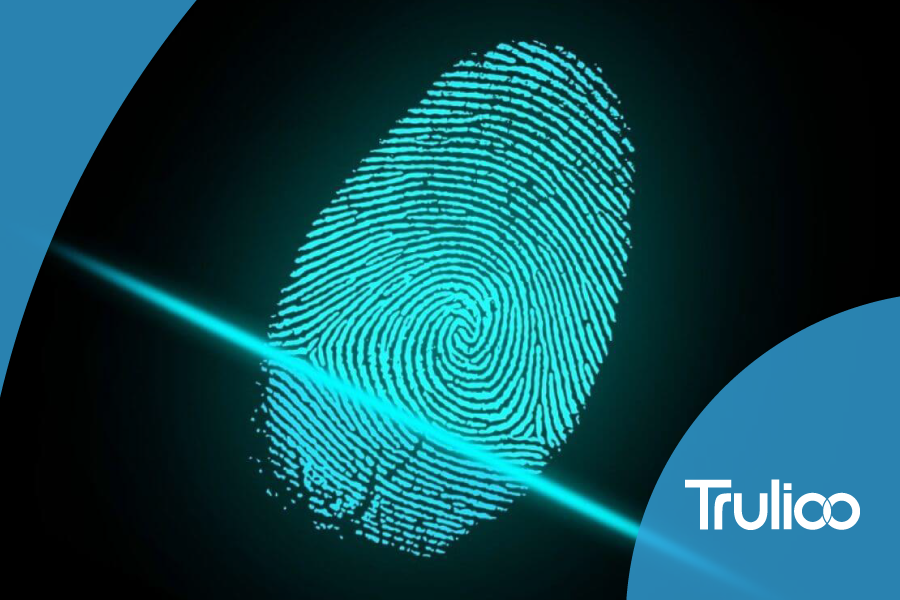Key takeaways:
- Identity verification is an important step that prevents fraud and theft.
- Both document verification and digital identity verification have their pros and cons.
- When it comes to customer experience, digital verification provides a more frictionless experience.
- Trulioo provides local ID verification, which allows your business to have the local expertise and a global reach.
Proof of identity is an integral part of any significant process and has already been around for thousands of years. It is essential when it comes to banking, legal issues, healthcare, and insurance. A solid proof of identity process can prevent identity theft, fraud, the loss of assets, and impede unwanted authorizations. Traditionally, companies will carry out a document verification process manually by authenticating markers on an ID. Obviously, this is time-consuming and hurts the customer experience.
Thanks to technology, remote identification is on the up and up, allowing automation to take care of the grunt work and provide a frictionless onboarding experience at a much faster rate. The question is, between document verification and digital identity verification, which one better mitigates risks and is more reliable in the face of fraud? While both have their advantages, we believe one has a pretty significant leg up. Let’s study the playing field to consider the risks and gains of both.
Document verification
Document verification usually involves providing a hard copy of an ID in person or scanning it to be reviewed. It uses pattern recognition and chip analysis to verify its authenticity, carried out by AI or a person. Using capture and analysis, this process can take a few days to complete. That’s assuming all the proper documentation is submitted! It’s not uncommon for clients to upload the wrong documents and start a feedback loop where you’re chasing them for the correct records. This can be frustrating for both parties involved.
There are better digital solutions out there that use AI and biometrics to verify documents instantaneously. While these are simple solutions that enable you to verify documents worldwide and satisfy requirements internally, many of them don’t fully comply with local laws. This means you’ll have to implement additional identity verification tools to adhere to regulations fully. This presents more trouble when compliances change, and companies are forced to adapt quickly.
When it comes to physical verification of a document, many believe this is the only full-proof way to verify someone’s identity. However, this is a dated mindset. Using digital tools is just as effective, though physical verification can be helpful in cases where higher risks are involved. On top of that, requiring a customer to show up to a branch or office is a massive inconvenience. It should be avoided at all costs to protect your brand image from appearing old-fashioned.
“. . . Don’t forget that without customers, you don’t have a business. Make sure that customer experience efforts are fully funded and resourced to provide the best experience possible in a competitive marketplace.” – Dan Gingiss, author of “Winning at Social Customer Care: How Top Brands Create Engaging Experiences on Social Media.”
Digital identity verification
Digital verification of all forms and processes feels like a natural progression in this technological era. Verifying users with a digital-first method means it can be done entirely remotely through OTP (one-time passcodes), knowledge-based identification, or local identity verification, which is optimal for its regulatory compliance. Verifying clients in this manner is preferable for all parties as it can be accomplished within seconds and is secure. A frictionless method, it doesn’t feel burdensome for customers either.
Digital identity verification eliminates bygone paper processes and a wet-signature approach, relying entirely on AI and automation that adhere to your set parameters. Governments are often changing the laws and regulations that surround identity verification. Using a digital solution makes it easier to pivot when these alterations occur, creating an adaptable eco-system of data privacy, security, and automation whilst adhering to all policies. According to ‘The Next Wave: Business Adoption of Digital Identity Protection’ report, innovation in digital identity authentication is “very” or “extremely” important to 43 percent of financial institutions.
Document verification vs digital identity verification – the verdict
When it comes to keeping up with the pace of the world, digital identity verification is the way forward, simply because digital transformation is so crucial. This avenue allows for better compliance and faster onboarding, ultimately leading to higher customer satisfaction. Digital identity verification also enables you to choose local ID services, which are far more streamlined than their global counterparts. This allows your business to have a local touch but a worldwide reach, catering to more customers.
Most companies use multiple identity verification solutions to ebb and flow with a customer’s ability to identify themselves. The digital-first approach is vital, leaving manual document verification as a backup solution only used in rare circumstances requiring a human touch. The type of verification solutions can also be scaled to the identity risks involved.
That’s why Trulioo offers both digital identity and document verification to ensure all your bases are covered. We also provide local ID services that allow you to verify customers quicker than ever. Trulioo provides the highest compliance possible with the shortest implementation time. You don’t even have to lift a finger when regulations change. When it comes to onboarding and identity verification, try our no-code platform that allows you to create customer flows in minutes. Book a demo today!
Solutions
Individual Verification
Simplify KYC Identity Verification Across the Globe
Resources Library

Know Your Customer
White Papers
Build Trust and Safety With Digital KYC
Featured Blog Posts
Business Verification (KYB)
Enhanced Due Diligence Procedures for High-Risk CustomersIdentity Verification
Proof of Address — Quickly and Accurately Verify AddressesBusiness Verification (KYB)
How to Verify Legitimate Businesses and Merchants




